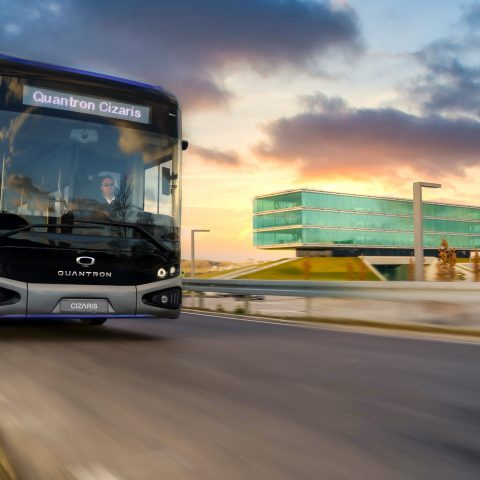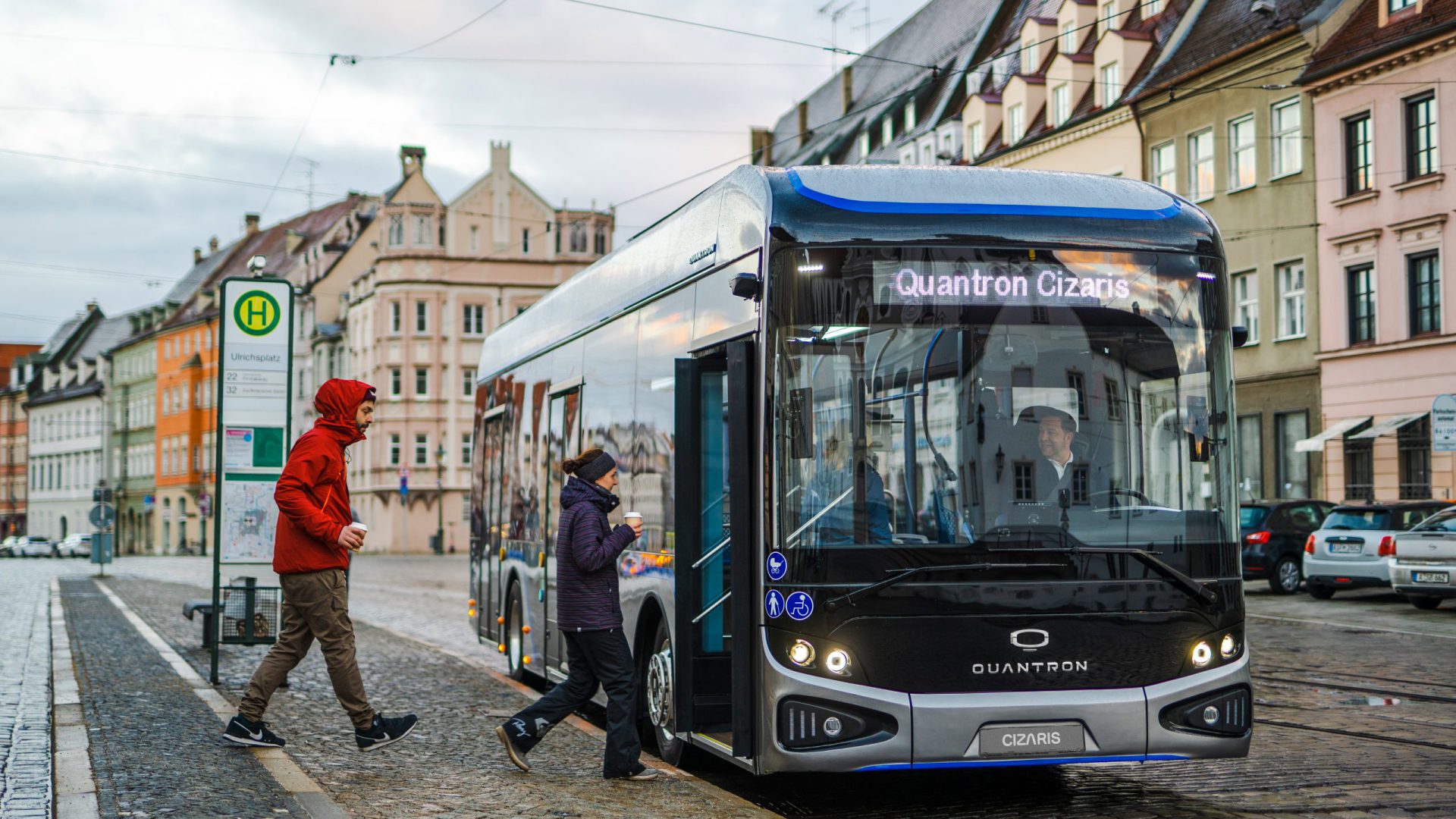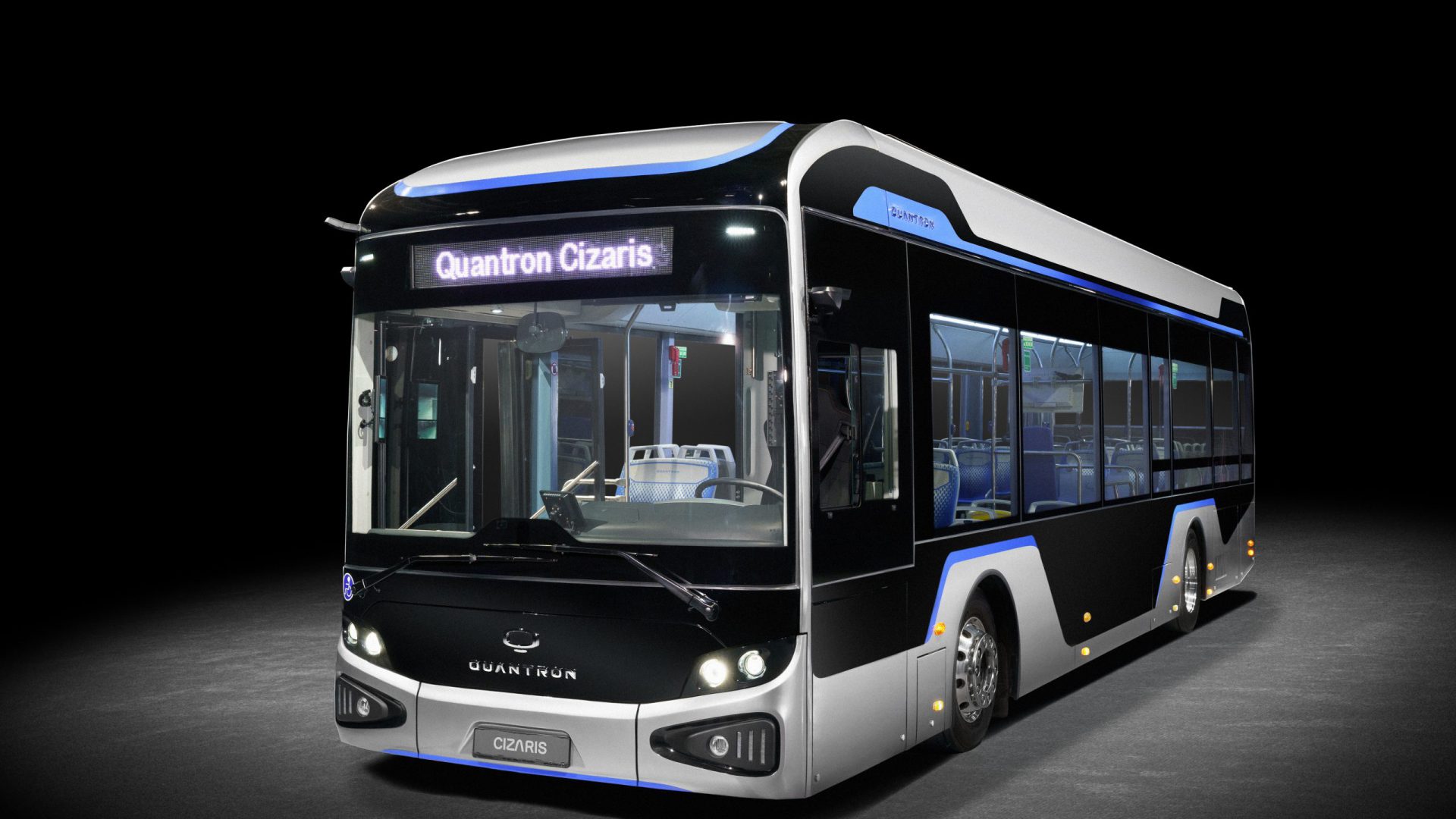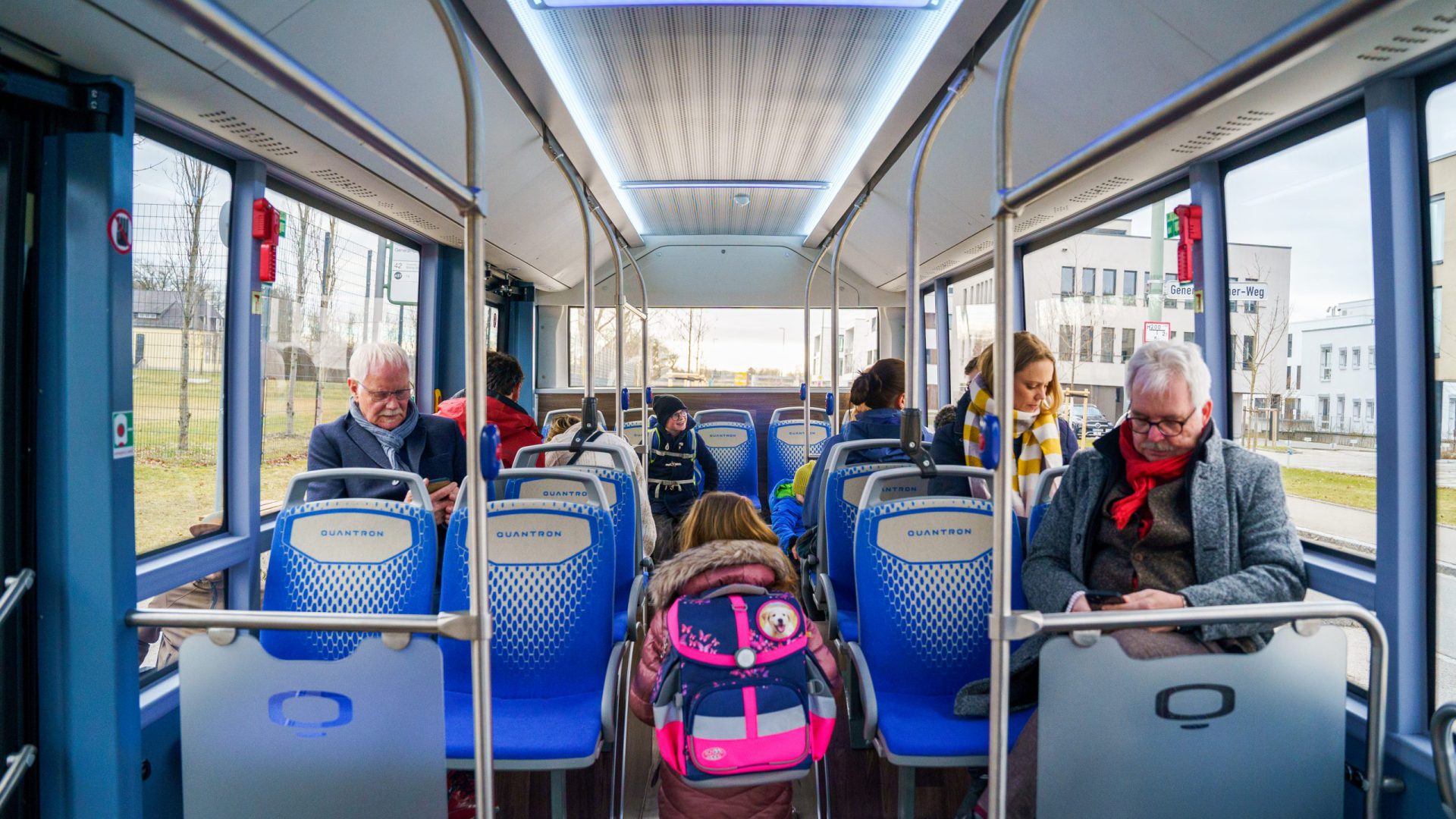Quantron Cizaris launched, with CATL batteries and TM4 motor. It is based on a platform proven in Asian markets
The Quantron Cizaris 12-meter electric bus was launched today during a digital unveiling ceremony. The new bus model in the Augsburg-based company’s bus portfolio is now available as an all-electric version (Cizaris 12 EV), followed in 2023 by a fuel cell drive (Cizaris 12 H) using a largely identical powertrain. Quantron acts as “Preferred Partner” […]

The Quantron Cizaris 12-meter electric bus was launched today during a digital unveiling ceremony. The new bus model in the Augsburg-based company’s bus portfolio is now available as an all-electric version (Cizaris 12 EV), followed in 2023 by a fuel cell drive (Cizaris 12 H) using a largely identical powertrain. Quantron acts as “Preferred Partner” thanks to its entrepreneurial connection with the Asian manufacturer EV Dynamics.
The Cizaris represents the entry of electric vehicle pioneer Quantron, founded in 2019, into the sustainable and tender-driven city bus market, which is becoming increasingly important for transport companies due to the European “Clean Vehicles Directive”. In doing so, the designers are drawing on a vehicle platform that has proven itself hundreds of times over in Asia’s largest electric bus markets in recent years.

Quantron Cizaris German launch in 2nd half 2022
The sales focus is initially on the markets of Eastern Europe, the Middle East, Scandinavia and Southern Europe, Quantron says. And adds: «Due to the special requirements of the German market, such as the VDV specifications regarding the driver’s workstation and other systems, the market launch in Germany, Austria and Switzerland will take place in the second half of 2022».
Quantron relies on the combination of CATL LFP (lithium iron phosphate) batteries (Quantron is also the European dealer for CATL) and synchronous central motor from Dana/TM4, which has been used in tens of thousands of buses for years.
CATL batteries and TM4 motor on the Quantron Cizaris
With between 242 and 424 kilowatt hours of selectable battery capacity, CATL’s roof-mounted-only battery packs are fast-charged with 65 to 150 kW of direct current (DC) in two to five hours. In the medium-heavy eSORT 2 cycle, this energy is sufficient for 220 to 370 kilometer (220 to 370 mile) circulations at a do-duty (DoD) charge rate of 10 percent, the manufacturer says
The vehicle-mounted and water-cooled Dana/TM4 central motor based on the permanent synchronous principle (PSM) is appealing due to its low speeds and particularly high efficiency compared with asynchronous motors. It has an output of 145/245 kilowatts (nominal/maximum) and a maximum engine torque of 1,055/3,329 newton meters, which is developed without any gear changes. With the introduction of the fuel cell version, an even more powerful powertrain will be used.

From 81 to 95 passengers on board of Quantron Cizaris
Thanks to its design as a purely electric bus, the vehicle does not have a conventional “power unit tower” in the rear and thus offers 24 to 35 seats – in total, depending on the battery package, there is room for 81 to 95 passengers.
Access is done through two or three 1,200 mm wide doors. The front area up to door two is fully low-floor and very easy to clean thanks to beautifully shaped keel seats. For the first time in this segment, Quantron says, the robust seat covers are manufactured using textile digital printing.
A Valeo heat pump/air conditioning unit with a cooling capacity of 33 kW provides the right climate on board. Of course, antiviral filters as well as a closed driver’s cab are among the possible equipment options adapted to the respective countries. A special highlight in the interior is the elaborately perforated aluminum ceiling with indirect lateral light as well as further LED lights mounted transversely to it, the color of which can be changed on request.

Quantron Cizaris, a look at the interiors
The driver’s workplace of the Cizaris is mounted on a raised platform from which the driver meets his customers at “eye level”. Here, every driver finds the optimum position on high-quality and versatile adjustable seats from Isringhausen or Grammer. The easy-grip steering wheel with the new brand logo is also adjustable in two directions. The basic principle of the cockpit could be summed up as “less is more”: the very functionally designed panel with large monitor for rearview camera and co. has very few buttons. On the right of the steering wheel is the recuperation lever, which can be used to select the power of the brake energy recuperation in three stages.
A fully digital instrument cluster from Actia provides information on all important processes and status messages, which can be optimally read at all times – as can the high-resolution camera mirror monitors. The Cizaris is one of the few city buses to also offer a separate front observation camera with a large monitor above the cockpit. The electric bus is equipped with the latest electronic safety systems such as ABS/ASR, EBS 5.0, ECAS from European production, and the turn-off assistant from Mobileye can also be retrofitted on request. And optimum fire protection is ensured in the rear compartment, in the battery modules and other high-voltage components by means of fire detectors (temperature/gas sensors) and separate powder extinguishing cartridges.
Quantron aftersale, a picture
The warranty terms are basically two years for the entire vehicle, and eight years or 3,000 charging cycles (or 80 percent charging capacity – whichever comes first) for the important batteries, the German company says. In total, Quantron has a network of 700 service partners in Europe, many of whom can also service electric buses. In a multi-stage service concept, it is checked in each case whether the customer’s workshop can be upgraded to work largely self-sufficiently with the support of Quantron technicians.







